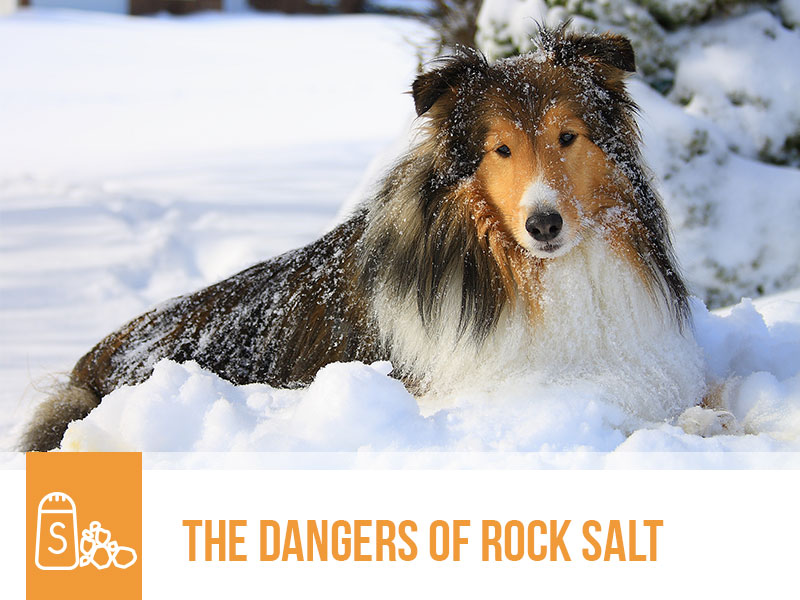
The dangers of rock salt
The de-icing of roads is commonly done with a mixture of gravel and rock salt. It acts by lowering the freezing point of water, meaning that a lower temperature is required for water to freeze on pavements, roads and assorted other pathways.
Rock salt is common table salt, sodium chloride, in its crystal form.
When in crystal form, the mineral is called halite and there are several salt mines all over the UK that supply the government with de-icer.
As such, in normal quantities like the ones you'd find in food, salt has no ill effects for either us or our pets, provided everyone is healthy. However, the accidental ingestion of rock salt used to de-ice roads is in such a high quantity that will be harmful to our pets.
All fluids, including of course bodily fluids, are bound by osmosis. Osmosis is a property of solutions that says that compounds in two different solutions will always travel in the direction of the solution with the least concentration.
In a more practical example, when a dog licks salt off their paws after a walk on salted roads, there will be a lot of salt ingested. This sodium will be absorbed into the blood stream and increase dramatically the osmotic power of blood. This will cause cells, who house a lot of water, to try and balance out concentration by losing water into the bloodstream. The cells that suffer the most with osmotic imbalances in the body are nervous system cells.
The loss of water provoked by ingesting too much salt is what causes the most damages in situations like this, damaging the structural integrity of the cell with a posterior haemorrhage of meningeal vessels.
What happens then to a dog that has ingested too much rock salt? They might experience vomiting, diarrhoea, lethargy, depression, difficulty walking, seizures and even coma if the situation is too severe.
To avoid situations like this, try to avoid the heavily de-iced roads when walking your dog. If you can't avoid it, wash your furry friend's paws thoroughly after that invigorating winter walk to avoid any ingestion when they lick at their paws.
If your dog has been exhibiting these symptoms (lethargy, vomiting, seizures ) and you suspect they might have had contact with rock salt, bring them to your vet immediately!
Would you like to know more about cats and dogs? Check our Feline and Canine Courses:
Feline courses
Canine courses
Read the previous article: Diabetes mellitus in cats


